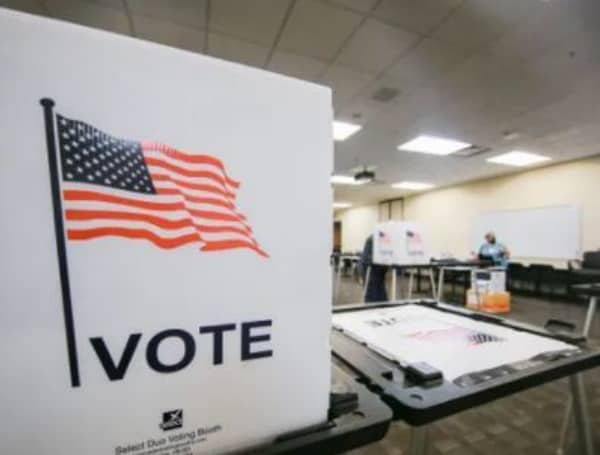Voting Booth, Source: TFP File Photo A federal judge on Friday struck down part of a 2023 state elections law that placed restrictions on what are
A federal judge on Friday struck down part of a 2023 state elections law that placed restrictions on what are known as “third party” voter-registration organizations, saying the law discriminated “against noncitizens regardless of immigration status.”
Chief U.S. District Judge Mark Walker issued a summary judgment on part of the law that would prevent non-U.S. citizens from collecting or handling voter-registration applications.
In July, he issued a preliminary injunction against that part of the law and another restriction that would make it a felony for voter-registration group workers to keep personal information of voters.
Read: Florida House Passes Energy Changes
Lawyers for Gov. Ron DeSantis’ administration appealed Walker’s preliminary injunction to the 11th U.S. Circuit Court of Appeals, where the issue is pending. They asked Walker to hold off on ruling on motions for summary judgment until the Atlanta-based appellate court decides on the injunction.
Groups including the League of Women Voters of Florida, Hispanic Federation and the NAACP filed a series of lawsuits challenging the 2023 law, arguing in part that it unconstitutionally targeted groups that plaintiffs maintain play an important role in signing up Black and Hispanic voters.
Walker’s ruling Friday came in a challenge filed by Hispanic Federation, Poder Latinx and individual plaintiffs. The judge’s ruling said that the part of the law regarding noncitizens violates constitutional equal-protection rights.
The “Florida Legislature chose to discriminate against all noncitizens on the face of the challenged provision” without a compelling state interest, Walker’s order said.
Walker relied in part on his July injunction order that found the provision in the law “impermissibly discriminates based on alienage.”
Read: Florida Rep. Matt Gaetz Slams “Sellout” House Republicans Over Temporary Spending Bill
Walker’s Friday decision granted a motion for summary judgment against Florida Secretary of State Cord Byrd, prohibiting him from enforcing the part of the law. The judge’s order also denied a motion for summary judgment against state Attorney General Ashley Moody because, he wrote, her role in the enforcement of the law remains a “disputed issue of fact.” The issue about Moody “must be answered with the benefit of a complete record after trial,” Walker’s order said.
Walker said Byrd’s lawyers offered “no authority” for why the judge should wait until the appeals court resolves the state’s injunction appeal.
“This court recognizes that it may be easier to simply wait for the Eleventh Circuit to weigh in on some of these issues in the appeal of the preliminary injunction,” Walker wrote. “But this court need not wait to decide the legal questions presented here.”
The part about noncitizens was unconstitutional because the state could have adopted a narrower approach, Walker’s ruling said.
Read: Florida Rep. Byron Donalds Says Biden Impeachment Inquiry Will Continue
“This court finds that, assuming arguendo that the citizenship requirement is supported by a compelling state interest, plaintiffs have demonstrated that it is not narrowly tailored to further that interest, and defendant Byrd has failed to proffer any evidence raising a genuine dispute as to the lack of narrow tailoring,” Walker said.
Walker on Tuesday refused to step down from the case, rejecting arguments by the state that suggested he had a “closed mind.”
The request for recusal stemmed from a ruling Walker issued Feb. 8 in a separate court battle about a 2021 elections law. In that ruling, Walker entered a judgment in favor of the state after the 11th U.S. Circuit Court of Appeals overturned an earlier decision in which he found the 2021 law improperly discriminated against Black voters.
Meanwhile, Walker this month rejected a League of Women Voters challenge to another part of the 2023 law that prevents people with certain felony convictions from “collecting or handling” voter-registration applications. Walker ruled the organization did not have legal standing to challenge that part of the law.
A trial about the 2023 law is slated to start April 1.
Help support the Tampa Free Press by making any small donation by clicking here.
Android Users, Click To Download The Tampa Free Press App And Never Miss A Story. Follow Us On Facebook and Twitter. Sign up for our free newsletter.

